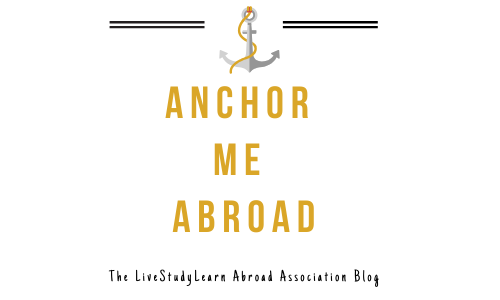
How To Get Financial Aid to Study in America
Students with a dream of studying abroad in America for a semester or to earn a full degree are often stunned at the tuition sticker price. According to the National Center for Education Statistics (NCES), in 2020, the cost of a private, four-year, non-profit college was $36,700 USD, up nearly $6000 USD from a decade prior.
Similarly, the costs of public four-year colleges increased by around $1200 USD to $9400 USD on average. Other colleges including two-year public universities and two-year/four-year private, for-profit colleges have also seen substantial increases.
While the cost of college in the US is and can be debated forever, with “both sides” pointing fingers and slinging mud for who’s to blame or how to fix it, here are THE FACTS: College in America is expensive and international students often need help paying for it.
Even for students that come from wealthy families, there is some hesitancy to justify the need to study or attend college in the United States when their children could easily get a similar education in emerging countries in the Middle East or Asia where their skills will go further in the long-run. This is where the question of financial aid, specifically what type and who is eligible comes in.
If you are an international student that has started researching financial aid options for study abroad in the United States, there is a high possibility that you have come across information about the Free Application for Federal Student Aid (FAFSA®).
Created by the US government to help assist US citizens to offset college costs, foreign students are not eligible for any aid that is available from FAFSA (although, the schools you apply to in America may still ask you to complete it since it sometimes plays a key role in determining what types of aid you will get from the college or university.
As an alternative, international students seeking a study abroad/degree opportunity have the option of applying for the International Student Financial Aid Application (ISFAA).
Pro Tip: America loves her acronyms, especially when it comes to official business, including government, academics, marketing, actually pretty much everything, so you’ll want to get familiar with some of the common ones, as they may be spoken about in conversational slang with an assumption that you would just know what the acronyms stand for. If you hear about the Internal Revenue Service (IRS) be very worried. 😊
Focused on helping your US educational institution determine aid that will come from endowments, campus scholarships, or internal grants, it is important to know that ISFAA access is NOT universal like the FAFSA is (hence why I mentioned earlier that some schools ask international students to complete the FAFSA even though they are not eligible for any federal aid).
The option to offer aid through ISFAA is on a school-to-school basis, either taking place internally through their own independent system OR through the College Scholarship Service (CSS) that runs through CollegeBoard, a large US-based nonprofit organization that manages entrance exams such as the SAT, LSAT, and MCAT (yay! MORE acronyms 🤣).
How Do I Find Out About My US College’s ISFAA?
One of the benefits of the price tag that comes with American education is the fact that most schools invest good money in specialists who are only there to help with financial aid. Most two-year and four-year colleges/universities and even some high schools, if you are coming to study at a younger age, will have at least one financial aid officer or may have an entire cohort in a ‘Financial Aid Office’.
I would recommend that you reach out to them directly before you apply to ask the following four questions:
1. How many international students do you accept on an annual (or semester-based) basis?
2. How many of these students are receiving financial aid?
3. What is the average award amount that they receive? (If you need significant help and the school only offers between 10-20% coverage for your expenses, you need to know this up front).
4. What is the process for applying for international financial aid and when does the process begin? (Again, this will showcase whether or not they have a mechanism in place to help support foreign students and will elaborate on specifically what this is).
What Will I Need If I Can Complete an ISFAA?
There are different pathways based on your dependence status as a student:
Dependent Student – The category that a large portion of students falls under, dependent students may still rely on their parents/guardians for select financial support, including a joint bank account or some tuition assistance. Dependent students are also those that are able to be claimed by their parents for tax purposes (varies by country).
Independent Student – In comparison, an independent student is one that will be primarily supporting themselves financially during their studies, this may include students who are married, emancipated minors, or students that have asylum who are receiving public benefits on their own.
For dependent students, you will need the following information while completing ISFAA:
ISFAA Application (or school’s equivalent for international student aid)
Parent Tax Returns or Statement of Income for their home country or employer (typical rule of thumb is to always provide the most current one, although some schools will accept it if it was issued within the last 12 months)
Parent W-2 Form – This would apply to international students who are not US citizens, but live in the US and have parents working in the US/for a US employer.
A W-2 form is managed by the IRS (remember them from earlier!) and helps determine all tax needs for employees. If it is not applicable, you can skip it.Student Tax Returns or Income Statement from home country or employer – Your own tax returns or income statement forms if you have filed them back home.
Student W-2 Form (only applicable if you have a current job in the US).
1098-T Form – This form is a Tuition Statement form that is used to report any qualified tuition expenses to the IRS. It is less applicable to international students, but in the case that it is, you or your parents might have the chance to claim the expenses from your tuition to receive limited tax credits.
For independents students, you will need the following information while completing ISFAA:
ISFAA Application (or school’s equivalent for international student aid)
Student Tax Returns or Income Statement from home country or employer – Your own tax returns or income statement forms if you have filed them back home.
Student W-2 Form (only applicable if you have a current job in the US).
Spouse’s Tax Returns or Income Statement (If you’re married)
Spouse’s W-2 Form (If you’re married)
1098-T Form – This form is a Tuition Statement form that is used to report any qualified tuition expenses to the IRS. It is less applicable to international students, but in the case that it is, you or your parents might have the chance to claim the expenses from your tuition to receive limited tax credits.
The information on your spouse is being collected for two reasons: To determine if you would be considered a dependent that they could claim on their tax returns (hence you would not necessarily be considered “independent”) and understand the full scope of your financial situation. Even for spouses that complete separate tax returns, most financial aid decisions are based on a household income basis.
ISFAA Annual Deadlines & Things to Remember
Since the ISFAA is available on an individual institution basis, you will want to clarify the deadline with your school. As a rule of thumb, most deadlines for financial aid in the US are in the Spring/Early Summer (between April 15 and June 30).
Before you submit your application, please ensure that you have completed all parts that are required. Begin by reading the instructions. If you are unclear on terms, do not hesitate to get in touch with your financial aid office at your school for clarification.
Also, and this is most important, please understand the process for submission. While we live in a technologically advanced society, paper applications and documents are still used, particularly in academia. Determine based on instructions from your school how they are expecting you to submit your application when you ask about the deadline.
Are you currently planning to study abroad in the United States? What states are you considering and which programs are you looking at? LEAVE A COMMENT!
Until next time,
-K

Known as The Study Abroad Specialist, Kimber Grayson is a serial-study abroader turned International Education coach and expert. Since 2014, she has helped 100+ students navigate their semester away journey from the coastal areas of Spain to China and every place in between. In 2018, she launched The LiveStudyLearn™ Abroad Association, a one-of-a-kind online membership platform for study abroad students worldwide.
She holds two Master's degrees from two well-respected London-based universities and has experience working in the US, UK & and Italy.
In her spare time (what's that again?), she enjoys leisure travel city breaks, any snow-based activity, skeet shooting, and attempting to learn new languages.
kimber
Known as The Study Abroad Specialist, Kimber Grayson is a serial-study abroader turned International Education coach and expert. Since 2014, she has helped 100+ students navigate their semester away journey from the coastal areas of Spain to China and every place in between. In 2018, she launched The LiveStudyLearn™ Abroad Association, a one-of-a-kind online membership platform for study abroad students worldwide. She holds two Master's degrees from two well-respected London-based universities and has experience working in the US, UK & and Italy. In her spare time (what's that again?), she enjoys leisure travel city breaks, any snow-based activity, skeet shooting, and attempting to learn new languages.


You May Also Like

How To Get a Chevening Scholarship in 2022
August 26, 2022
How to Create a Recession-Friendly Study Abroad Budget
September 10, 2022






